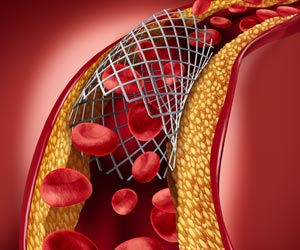New study investigates the link between obstructive sleep apnea and inflammation, organ damage. The study findings suggest that obstructive sleep apnea syndrome (OSAS) promotes a persistent low-intensity inflammatory state.

‘New study examines the link between obstructive sleep apnea and inflammation, organ damage. The study findings suggest that obstructive sleep apnea syndrome (OSAS) promotes a persistent low-intensity inflammatory state.’
Read More..




"Aging has become the next frontier in medicine," said renowned sleep specialist David Gozal, MD, chair of the Department of Child Health at the University of Missouri School of Medicine.Read More..
Chronological age -- the passing of time one spends on this planet -- cannot be reversed, Gozal said. However, biological age -- one's health relative to that of one's peers -- can be turned back. Healthy lifestyle habits contribute to "aging well," meaning one's biological age is younger than one's chronological age, Gozal said. And sleep is a major factor in how well one ages.
In the study, "Obstructive Sleep Apnea and Inflammation: Proof of Concept Based on Two Illustrative Cytokines," researchers examined the link between obstructive sleep apnea syndrome (OSAS) and inflammation and the ensuing damage caused to organs. They concluded that OSAS promotes a persistent low-intensity inflammatory state.
Gozal and Leila Kheirandish-Gozal, MD, director of the MU School of Medicine's Child Health Research Institute, make the case that sleep-disordered breathing such as OSAS should be viewed as a low-grade chronic inflammatory disease That's because OSAS often leads to altered lung ventilation and low concentrations of oxygen in the blood, which can trigger inflammation.
Inflammation is associated with changes in neurocognition, mood, behavior, cardiovascular function, and metabolism, as well as a host of related conditions including chronic kidney disease, erectile dysfunction, eye disease and cancer.
Advertisement
"We would like to be very precise in how we treat sleep apnea," Gozal said.
Advertisement
Gozal is hopeful future studies will help researchers better understand the biomarkers that point to a person's unique vulnerabilities to the nuances of inflammation and, in turn, improved treatments to correct and prevent cellular damage.
These treatments, Gozal said, could help reverse patients' biological ages, leading to longer, healthier lives.
Primary funding for the study is from the National Institutes of Health (HL130984 and HL140548), and the Office of Medical Research at the MU School of Medicine. The study authors declare that they have no conflicts of interest. The content is solely the responsibility of the authors and does not necessarily represent the official views of the funding agencies.
Source-Eurekalert















